Kenya elections 2022: While Kenya waits, unfounded election claims spread
- Published
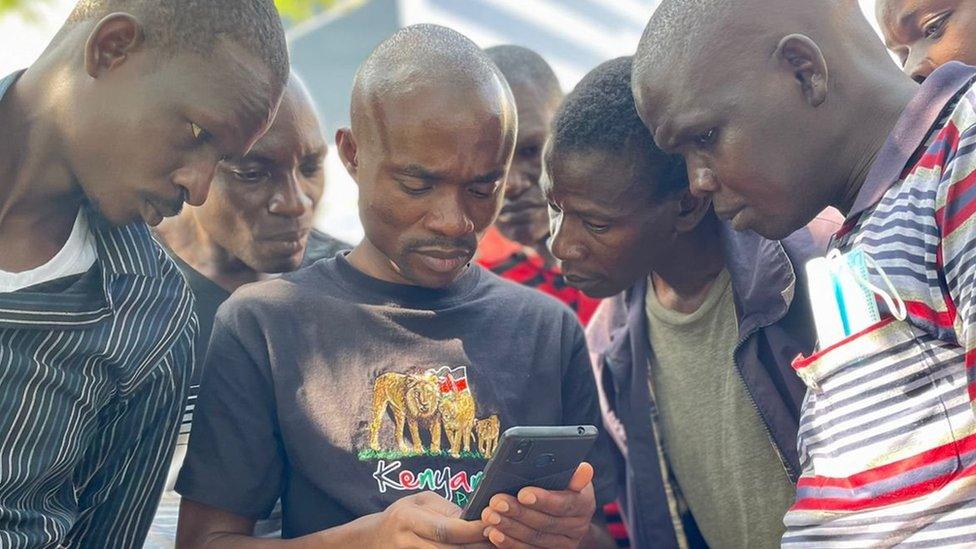
Kenyans are keenly following the election online
In the uneasy period between Kenya's presidential election last week and the much anticipated declaration of the final official result, social media platforms have been flooded with conflicting claims over who has won.
It's a country where political twists and turns are very much guided by influential online pundits with large followings on platforms such as Twitter and Facebook.
With concrete information hard to come by, misinformation and exaggeration has been the order of the day particularly as it's a very tight race between Deputy President William Ruto and long-time opposition leader Raila Odinga.
So in the world of social media speculation, both candidates have already been declared the winner.
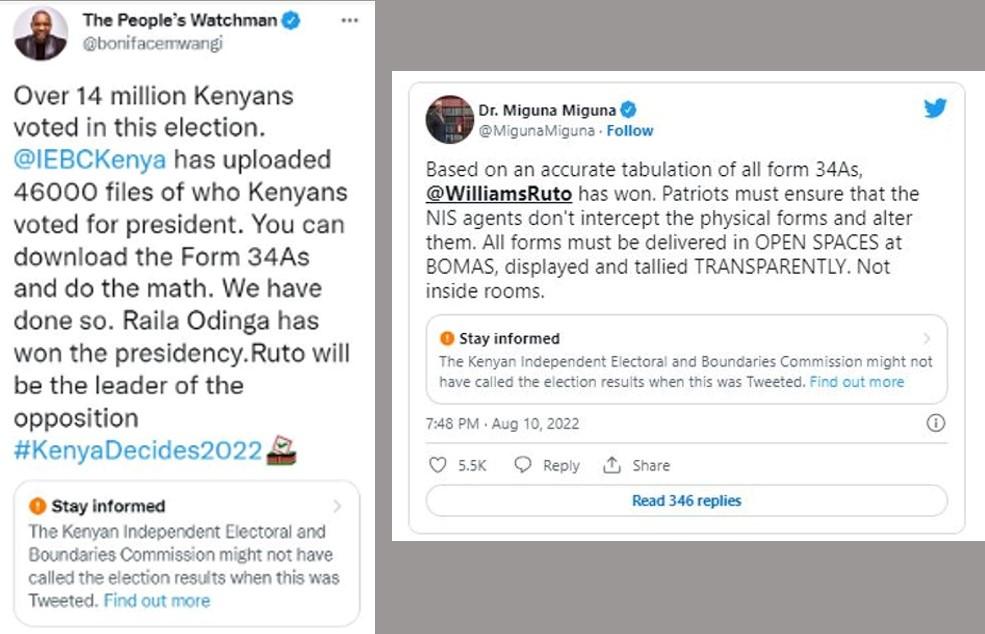
Twitter has placed labels on some posts warning users to wait for the official result. There have already been claims of politicians losing their seats only for them later to be announced as winners.
Bypassing mainstream media
As in many countries, influential bloggers and politicians in Kenya help political parties bypass mainstream media channels and connect directly with potential supporters.
For many, this has been the main source of information during the election campaigns and a means of mobilising support.
Election observers and monitoring groups have expressed concern at the scale of the false and misleading information being spread.
Some posts are falsely claiming fraud at polling stations, such as this one from a Ruto supporter suggesting a voter turnout of over 100% in an area with strong traditional support for Raila Odinga.
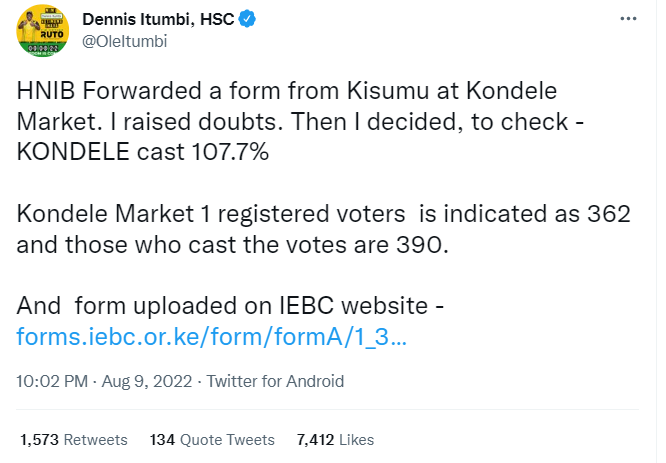
The Tweet is partially correct. There is indeed a discrepancy on the returning officer's declaration form.
However, referring back to the official voter registration data shows that the number of registered voters should be 632 and not 362.
The error at the local level makes no difference to the number of votes recorded, and indicates that the turnout at this polling station was about 62%.
Mistrust of voting technology
On the other side, Mr Odinga's supporters have been having a go at their opponents online.
In this Tweet, for example, a long-standing disagreement over the use of an electronic system is highlighted by pointing out that Mr Ruto's running mate, Rigathi Gachagua (whose coalition opposed the use of a manual register) had difficulties registering at a polling station using the electronic method.
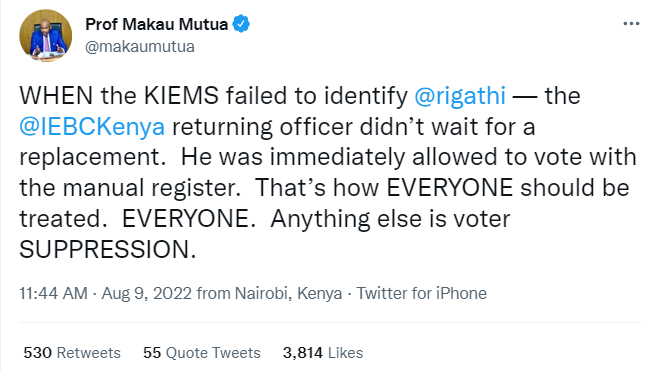
While the electronic kit initially had problems identifying Mr Gachagua, it eventually worked after he rubbed his finger on his hair allowing him to vote.
Fake election accounts
For those trying to locate reliable sources of election information it's all too easy to fall into the trap of fake accounts pretending to be those of official electoral bodies.
A Twitter account calling itself IEBC Tabulation has been posting election results and using the Independent Electoral and Boundaries Commission's official logo as the profile picture and cover image.
To confuse further, the account linked directly to the authentic election website. However, a deeper look quickly revealed not only clear political bias, but also that it had recently been posting a stream of sexually explicit content.
This account has now been suspended for violating Twitter rules.
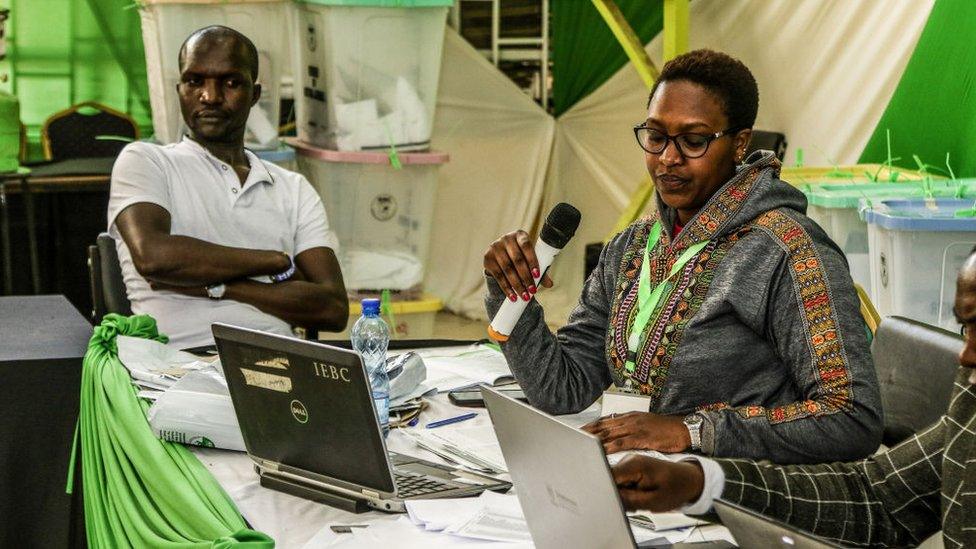
Voting that never took place
One attempt at misleading voters appeared on election day itself, suggesting that votes had already been tallied in an overseas polling station in Sydney, Australia and that Mr Odinga had received the most votes.
Variations of this message, presumably designed to energise supporters to get out and vote, circulated on WhatsApp, Twitter and Facebook.
However, it was all made up. There were no Kenyan diaspora polling stations in Australia.
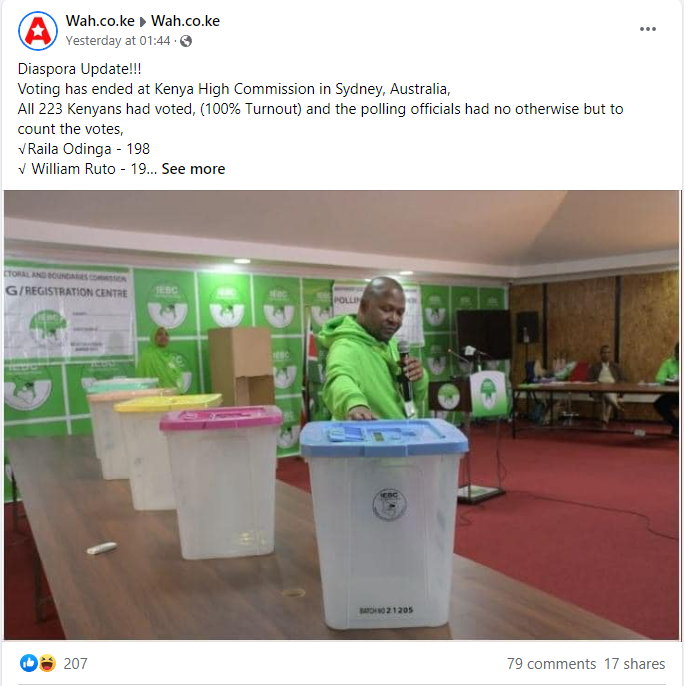
The electoral commission says voting by the diaspora was taking place in 12 locations: Burundi, Tanzania, Rwanda, Uganda, South Africa, United Kingdom, Canada, USA, South Sudan, Qatar, UAE, and Germany.
Australia wasn't one of them.

YOUTH VIEW: The woman rallying election crowds - but won't vote
A WOMAN'S BATTLE: Taking on sexist bullies to stand
RAILA ODINGA: The eternal candidate hoping it will be fifth-time lucky
WILLIAM RUTO: William Ruto: The former chicken seller with presidential ambitions
READ MORE: Full coverage

